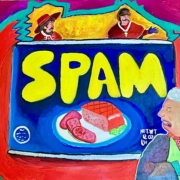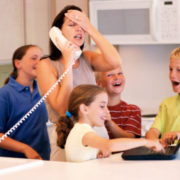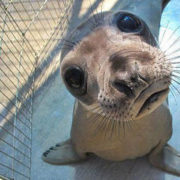How Do You Cope With Losing the Relationship You Once Had With an Adult Child?
Wow, this is a tough one. A situation that is full of blame, grief, and having all of your defense mechanisms triggered. How on earth do you cope with losing the once close relationship with a child you nurtured, raised, and cared for with all of your heart, soul and mind?

When parents come in to see me they most often are expressing a litany of all of the reasons why they should not be excluded from their child’s life. They are usually grieving the loss of contact with precious grandchildren as well. Blame is an active part of the conversation, whether it is of their child, their child’s spouse, or a lack of self-compassion for choices the parent made during the child’s upbringing they wish they could change now.
Blame leaves both parties stuck. Blame is the act in the play that causes parents and children to do that which is the opposite of what would heal the rift. It does not help.
Openness to what is being said to each other without sitting in the defense posture is the door to healing. And if the relationship simply cannot be repaired, then the parent can learn to understand that allowing their feelings to be felt vs. avoiding them by continually entering into defense mode, is the choice that will allow them to feel better overall. Feelings are never permanent. They come and they go (often in less than a minute!), even the positive ones, even joy.
There are several factors in play when a family is estranged. Considering family history and communication challenges is where you begin. There is almost always a communication problem in play. And it is nearly impossible to hear what is being said if you are feeling attacked. Defense mode is the default position. And it takes time to get out of it.
Another causal factor that may be in play is that of differentiation. This is a natural evolutionary process that children must undergo successfully to reach an adulthood that is emotionally healthy and leaves the child in a place where they can operate independently, yet allows them to join with their family (eventually) in a loving and healthy relationship. It is typically accomplished by going off to college, traveling, or choosing a path that may be less than optimal in the parent’s view, but is a necessary option for the child to explore.
Some cultures actually place a child in the forest and they must figure out how to survive, coming back as “adults” in the culture that is present. Various ceremonies and rituals accompany this time. The demarcation is clear, unlike our culture, where this change may be long and nebulous. This can be a painful time for parents as the child pulls away, but this is their job as children. And for some children the job goes on a very long time, never quite reaching completion.
Sometimes a parent’s unmet needs can get in the way of the differentiation process. This is often the case in second or third marriages when blended family is different from the family of origin for the child. A child’s view of their world at the time of divorce can be very different from their adult view, but is often solidified during painful adolescent years, perhaps even fed negatively by a parent that feels slighted by the divorce. A parent can “parentalize” a child without being aware of it by making the child into her best friend. This causes a conflict within the child by creating a burden filled with dichotomy. How can you successfully differentiate from your parent if they constantly need you to be their BFF?
You can see that this is an extremely painful, complex issue. Parents need to do the work of self examination to cope with what may or may not change in terms of the relationship status. The time frame of change is not something that can be controlled when both parties have their own work to do. One thing is for certain, the more you understand and tolerate your own emotions, the better you will feel.










Leave a Reply
Want to join the discussion?Feel free to contribute!